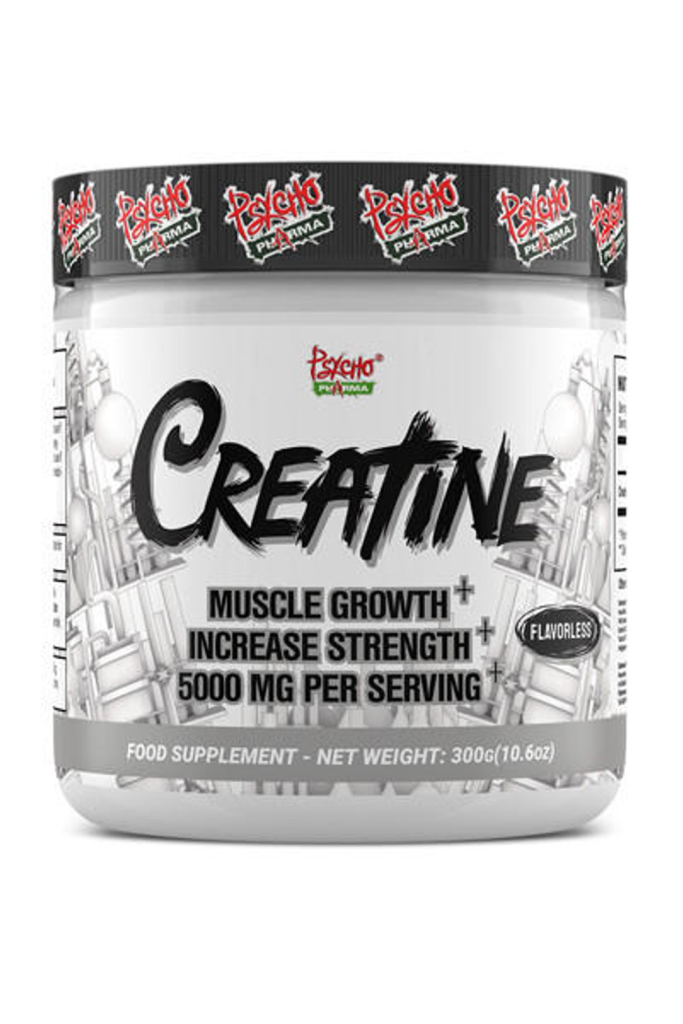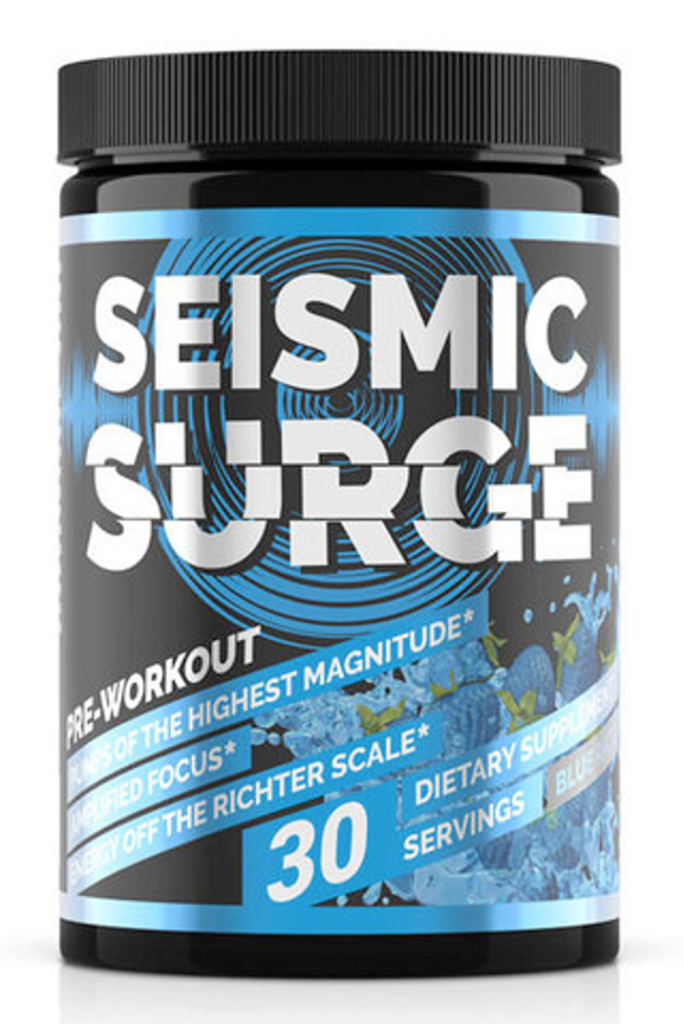The introduction sets the stage for the article “Fuel Your Fire: How Nutrition and Pre-Workout Supplements Work Hand in Hand.” In the realm of fitness and exercise, the pursuit of peak performance is a common goal. As individuals engage in workouts to achieve their desired fitness outcomes, the role of nutrition and supplementation becomes increasingly significant. In recent times, the spotlight has turned to pre-workout supplements, touted for their potential to enhance energy, focus, and endurance. However, these supplements don’t exist in isolation; they are just one piece of the puzzle. The true magic happens when they are seamlessly integrated into a holistic approach that includes a well-balanced diet. This article delves into the intricate relationship between nutrition and pre-workout supplements, highlighting how these two components, when combined strategically, can synergistically fuel workouts and contribute to reaching fitness milestones.
Understanding Pre-Workout Supplements
Pre-workout supplements, often utilized by fitness enthusiasts and athletes, play a crucial role in optimizing workout performance. These supplements are specifically designed to provide a boost in energy, enhance endurance, and improve focus during training sessions. They can be particularly beneficial when following a bulking guide, supporting your body’s needs during intense training and muscle-building phases.
Primary Purposes of Pre-Workout Supplements
Energy Boost: One of the core purposes of pre-workout supplements is to provide an immediate surge of energy. This is especially valuable when embarking on demanding workouts. Pre-workout supplements contain ingredients that help increase alertness and combat the fatigue that can set in during rigorous training.
- Enhanced Endurance: Endurance is key to pushing through longer workouts and challenging sets. Pre-workout supplements often contain compounds that improve blood flow and oxygen delivery to muscles. This can delay the onset of muscle fatigue and allow you to perform at a higher intensity for an extended period.
- Improved Focus: Maintaining mental clarity and focus during a workout can significantly impact your performance. Pre-workout supplements may include ingredients that enhance cognitive function, helping you concentrate on your exercises and maintain proper form.
Common Ingredients Found in Pre-Workout Supplements
Pre-workout supplements contain a variety of ingredients that contribute to their desired effects. These can include:
- Caffeine: A well-known stimulant that provides an energy boost and increases alertness. It also enhances fat oxidation, making it a popular choice for those aiming to reduce body fat during their bulking guide.
- Amino Acids: Branched-Chain Amino Acids (BCAAs) and other essential amino acids are included to support muscle recovery and growth. BCAAs can also reduce muscle breakdown during intense workouts.
- Creatine: Known for its ability to increase ATP production, creatine improves short-term bursts of energy, making it ideal for high-intensity exercises.
- Beta-Alanine: This amino acid helps delay the onset of muscle fatigue, allowing you to push through more reps or longer cardio sessions.
- Nitric Oxide Boosters: Ingredients like citrulline and arginine help enhance blood flow by promoting vasodilation. This contributes to improved nutrient delivery and oxygenation of muscles.
Role of Pre-Workout Supplements in Enhancing Workout Intensity and Motivation
Pre-workout supplements are not just a physical boost; they also impact your mental state. The ingredients, such as caffeine and other stimulants, provide a heightened sense of readiness and motivation to tackle your training. The anticipation of improved performance can elevate your confidence and enthusiasm, driving you to give your best effort.
By incorporating pre-workout supplements into your routine, you can experience increased energy, prolonged endurance, and heightened focus, all of which are essential for effective workouts. Remember that while these supplements can be beneficial, they are most effective when combined with a well-balanced diet, proper hydration, and appropriate rest.
The Foundation: Nutritional Basics
A well-balanced diet serves as the bedrock upon which successful fitness goals are built. When you envision your body as a high-performance machine, nutrition becomes the fuel that powers its every move. The significance of a balanced diet cannot be overstated, as it not only fuels your workouts but also ensures your overall well-being.

Key Macronutrients: Energize, Repair, Thrive
- Carbohydrates: Often dubbed the body’s primary energy source, carbohydrates are the fuel that propels you through even the most challenging workouts. Found in foods like grains, fruits, and vegetables, carbs are transformed into glucose, providing readily available energy. They’re essential for maintaining exercise intensity and stamina. Opt for complex carbs like whole grains for sustained energy release during your workout.
- Proteins: Proteins are the building blocks of muscle repair and growth. They aid in repairing the micro-tears that occur during exercise, fostering muscle development. Lean protein sources like chicken, fish, tofu, and legumes contribute to muscle recovery and maintenance. Including protein in your diet supports your body’s ability to adapt and become stronger.
- Fats: Healthy fats are vital for overall health and energy. They provide a concentrated source of energy, insulation, and cushioning for vital organs. Omega-3 fatty acids, found in fatty fish, nuts, and seeds, offer anti-inflammatory benefits that can aid in recovery after intense workouts. Incorporating moderate amounts of healthy fats also helps sustain energy levels.
Hydration: Quenching the Body’s Thirst for Success
Amidst all the talk about macronutrients, hydration often takes the back seat, but its importance cannot be ignored. Staying well-hydrated is a cornerstone of workout success. Dehydration impairs physical performance, saps energy, and hampers focus. Water is essential for regulating body temperature, transporting nutrients, and lubricating joints.
Quick Tips for Staying Hydrated:
- Drink water throughout the day, not just during workouts.
- Monitor urine color; pale yellow indicates proper hydration.
- Consume water-rich foods like fruits and vegetables.
- Hydrate before, during, and after exercise to maintain peak performance.
Building Your Nutritional Foundation
Balancing your macronutrient intake and staying adequately hydrated are pivotal steps toward reaching your fitness goals. Remember, a balanced diet is not about strict restrictions but rather about making informed choices that align with your body’s needs. Each macronutrient plays a unique role in optimizing your workouts and supporting your overall health.
By incorporating a variety of nutrient-dense foods into your diet, you provide your body with the tools it needs to perform at its best. As you embark on your fitness journey, keep in mind that what you put into your body directly influences what you get out of it. Hydration, along with the trio of carbohydrates, proteins, and fats, lays the foundation for a successful and sustainable approach to achieving your fitness aspirations.
Synergy between Nutrition and Pre-Workout Supplements
Nutrition and pre-workout supplements operate hand in hand, forming a dynamic duo that can significantly enhance your workout performance and results. When combined strategically, they create a powerful synergy that optimizes energy levels, supporting muscle growth and aids in recovery. Many people follow a muscle building supplements guide. Let’s delve into the ways nutrition and pre-workout supplements complement each other, focusing on how specific nutrients align with the effects of pre-workout supplements, and how amino acids work together to promote muscle growth and recovery.
Nutrition as the Foundation:
A well-rounded diet serves as the foundation upon which the effects of pre-workout supplements can be magnified. Essential nutrients, such as carbohydrates, proteins, and fats, play distinct roles in fueling workouts, supporting muscle function, and overall bodily functions.
- Carbohydrates and Energy Boost: Carbohydrates are a primary energy source for your body. When consumed before a workout, they provide a readily available source of fuel. This aligns with the effects of energy-boosting pre-workout supplements that often contain ingredients like caffeine or natural extracts. Together, they provide a surge of energy for intense exercises.
- Proteins for Muscle Building: Protein is essential for repairing and building muscles. Consuming protein-rich foods, combined with the effects of muscle-building supplements, can create an environment conducive to muscle repair and growth. These supplements, when paired with dietary proteins, enhance the availability of amino acids needed for rebuilding muscle tissues.
Amino Acids: Combining Dietary and Supplement Sources:
Amino acids, the building blocks of proteins, are pivotal in muscle building and recovery. Both dietary sources and supplements contribute to their availability in your body, amplifying their positive effects.
- Leucine and Muscle Growth: Leucine, an essential amino acid, triggers muscle protein synthesis, a key process in muscle growth. While quality dietary protein sources like lean meats and eggs provide leucine, certain pre-workout supplements also include this amino acid. This combination ensures that your muscles receive a consistent supply of leucine, optimizing their potential for growth.
- BCAAs for Recovery: Branched-Chain Amino Acids (BCAAs) are vital for reducing muscle breakdown and enhancing recovery. Amino acids like valine, isoleucine, and leucine, found in both your diet and certain pre-workout supplements, work synergistically to support muscle recovery after intense training sessions.
Timing Matters: When to Consume Pre-Workout Supplements and Meals
Timing plays a pivotal role in optimizing the effects of both pre-workout supplements and meals. Properly aligning their consumption with your workout routine can significantly enhance your performance and results. Here’s a breakdown of the importance of timing and practical guidelines to follow:
Importance of Timing:
Effective timing ensures that the nutrients from your pre-workout supplements and meals are available when your body needs them most. This not only maximizes energy levels but also supports muscle function, endurance, and overall workout output. Consuming the right nutrients at the right time can mean the difference between a productive session and a lackluster one.
Guidelines for Pre-Workout Supplements:
- 30 Minutes Before: Ideally, take your pre-workout supplement about 30 minutes before your workout. This gives your body enough time to absorb the supplement’s ingredients and put them to work.
- Caffeine Consideration: If your pre-workout contains caffeine, consider your caffeine sensitivity and how it might affect your sleep. Avoid taking caffeine-containing supplements too close to bedtime to prevent sleep disruptions.
- Individual Response: Keep in mind that everyone’s body responds differently. Experiment with the timing of your pre-workout supplement to determine what works best for you. Some individuals might find that taking it 15 minutes before works better, while others might prefer the full 30-minute window.
Insights into Meal Timing:
A balanced meal before your workout serves as a vital source of sustained energy. It ensures that your body has a readily available supply of nutrients to power you through your exercises. Here’s how to time your meals to align with your workout schedule:
- 1-2 Hours Before: Aim to consume a balanced meal containing carbohydrates, proteins, and healthy fats about 1 to 2 hours before your workout. This gives your body enough time to digest the meal and convert it into usable energy.
- Carbohydrate Focus: Prioritize carbohydrates in your pre-workout meal. Carbs are the body’s preferred source of energy, providing the fuel needed for intense physical activity.
- Protein Inclusion: Including protein in your pre-workout meal supports muscle repair and growth. Opt for lean protein sources like chicken, fish, tofu, or legumes.
- Fiber Consideration: While fiber is an essential part of a healthy diet, consuming too much fiber immediately before a workout might cause digestive discomfort. Choose easily digestible fiber sources if you want to include them in your meal.

Quick Tips:
- Hydration is crucial throughout the day, including before and during your workout.
- Avoid heavy, greasy, or overly large meals right before exercising to prevent discomfort.
- If you’re short on time, consider a small, easily digestible snack that contains carbohydrates and a bit of protein.
Nutritional Practices to Enhance Pre-Workout Supplementation
To truly harness the potential of pre-workout supplements, pairing them with specific nutritional practices can amplify their benefits. Consider these targeted approaches that work in harmony with your supplements to optimize your workout results:
1. Consuming Complex Carbohydrates for Sustained Energy Release
- Complex carbohydrates, found in whole grains, fruits, and vegetables, offer a steady release of energy over time.
- When combined with pre-workout supplements, complex carbs provide a foundation of sustained fuel for your muscles during your entire workout session.
- Examples include oatmeal, quinoa, sweet potatoes, and brown rice. These foods provide a gradual increase in blood sugar levels, preventing energy crashes.
2. Including Lean Proteins for Muscle Repair and Growth
- Lean proteins, such as poultry, fish, beans, and tofu, aid in muscle repair and growth by providing essential amino acids.
- Consuming lean proteins alongside pre-workout supplements supports the recovery process, helping to repair the microtears in muscle fibers caused by exercise.
- Aim for a balanced protein intake to optimize muscle protein synthesis and enhance your body’s response to the workout.
3. Incorporating Healthy Fats for Overall Energy and Hormone Regulation
- Healthy fats, like those found in avocados, nuts, seeds, and fatty fish, play a role in regulating hormones and providing sustained energy.
- When combined with pre-workout supplements, healthy fats contribute to a feeling of satiety, helping you stay focused during your workout.
- These fats also aid in the absorption of fat-soluble vitamins, further enhancing your body’s nutrient utilization.
4. Prioritizing Nutrient-Dense Foods to Provide Essential Vitamins and Minerals
- Nutrient-dense foods, such as leafy greens, berries, and colorful vegetables, are rich in vitamins, minerals, and antioxidants.
- Pairing these foods with pre-workout supplements provides a wide array of micronutrients that support various bodily functions, from energy production to immune health.
- Vitamins like B-complex vitamins and minerals like magnesium are particularly important for energy metabolism and muscle function.
Conclusion
In the journey towards optimizing your workout performance and achieving your fitness goals, the synergy between pre-workout supplements and specific nutritional practices forms a dynamic duo. By understanding the power of timing and the value of a well-balanced diet, you can unlock a new level of effectiveness in your workouts.
From consuming complex carbohydrates for sustained energy release to including lean proteins for muscle repair and growth, each nutritional element plays a crucial role. Healthy fats contribute to overall energy and hormone regulation, while nutrient-dense foods provide a rich array of vitamins and minerals that support various bodily functions.








